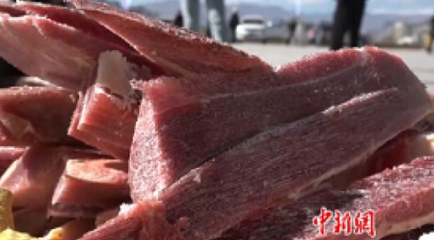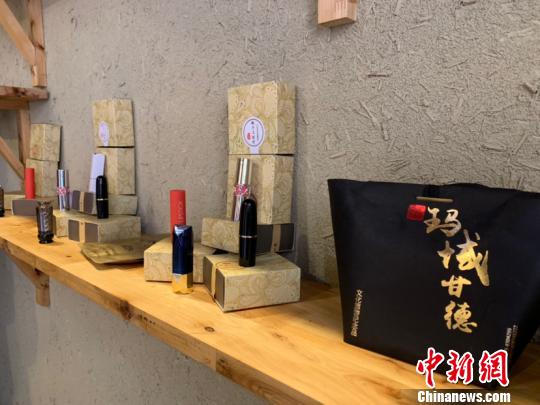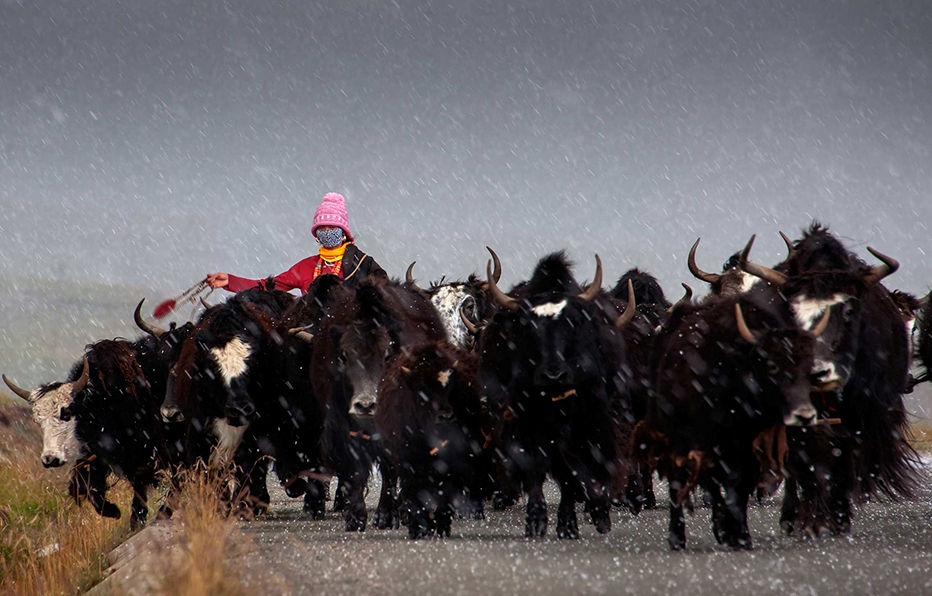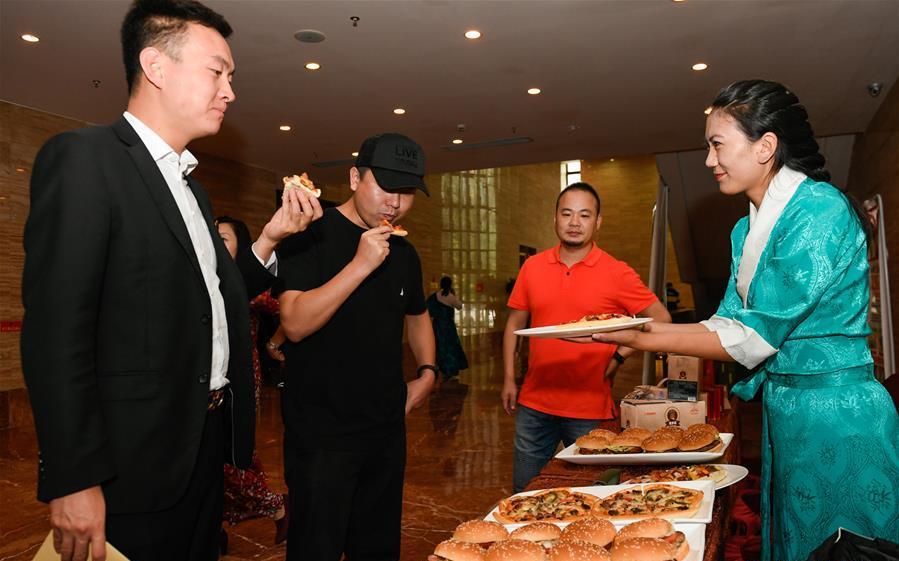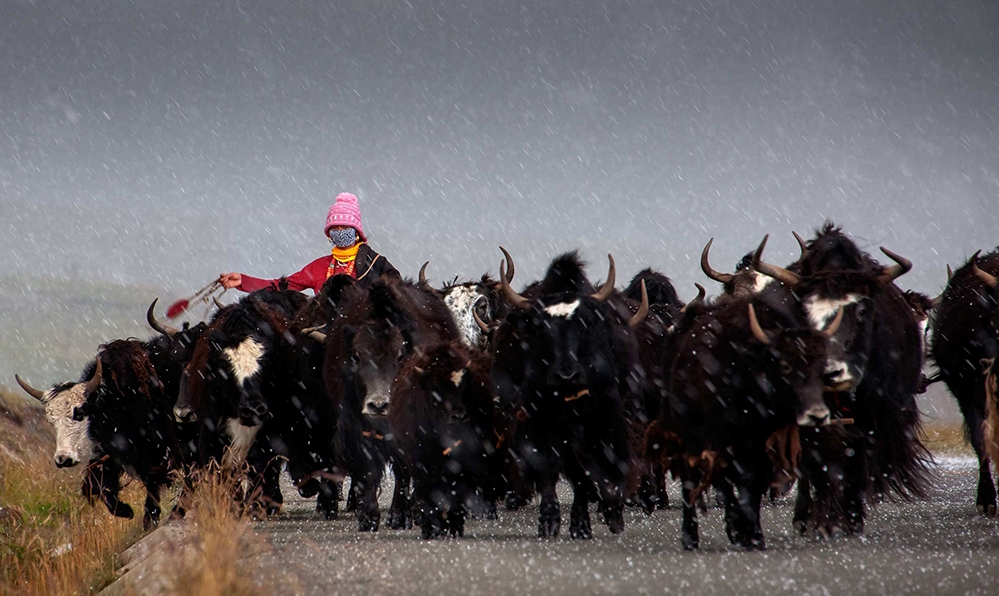Yak as a snack-a new kind of noodle-and-meat treat

Dry noodles with sauce and minced yak, thick-sliced yak and pickles are among the signature dishes of A Bu Noodle, which focuses on yak meat with Qinghai flavor. [Photo/China Daily]
The Chinese character bu consists of two parts-gong on top of fu, which also means kung fu.
After Kung Fu Panda was released, the word bu got a new meaning, referring to people who know kung fu.
A Bu Noodle is on the B1 floor of the Hopson One shopping center in Chaoyang district of Beijing-and the name hints that it serves kung fu noodles.
According to Ma Zhonghua, the manager of the restaurant, the eatery is a noodle house focusing on yak-meat kung fu noodles from Qinghai province-all the meat they used is fresh yak delivered to the restaurant daily from Qinghai.
"The yaks live on the Qinghai-Tibet Plateau, which is 3,600 meters above sea level," says Ma.
"Yak meat is rich in protein, amino acids, carotene, calcium and phosphorus. It's low in fat. So, it's called the champion of beef."
A Bu's menu is simple-their signature noodles are yak-noodle soup and dry noodles with sauce and minced yak.
The slices of yak meat are marinated the night before, and stewed for hours before being served.
Similarly, the soup is made from yak bones and marrow, which has to be boiled for eight hours.
"The noodles really need kung fu to make," says Ma.
"Unlike the regular Lanzhou hand-pulled noodles, the springy texture of these noodles comes from dozens of procedures. The chef has to rub the dough using the same gesture for more than half an hour.
"There are several types of noodles. So, if you have a preference, you can tell the chef. Otherwise, you get the one with the regular width."
The thick-sliced yak, yak kebabs and mutton kebabs on tamarisk sticks, cold rice noodles and pickles are also worth trying.
The milk tea made using brick tea and milk is another must-try.
"In Northwest China, people's diet is a bit greasy. So, we drink milk tea to neutralize the grease," says Ma, adding that you can also enjoy homemade yogurt.
The restaurant is located next to office buildings, so its customers are mainly office staff on weekdays.
Ma says the food is delivered to diners' table within minutes of the order.
"The noodles need only 30 to 40 seconds to boil and can be delivered to the table in under three minutes.
Tibet Stories
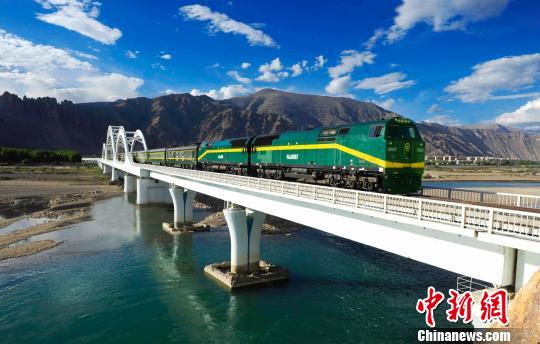
What has the Qinghai-Tibet Railway brought to Tibet?
On July 1, 2006, the Qinghai-Tibet Railway opened to passengers, ending a history of no rail...
Latest News
- Pompeo warns deterrence "on the horizon" over Russian acts on Ukraine, Venezuela
- Trump's ex-lawyer Cohen sentenced to 3 years in jail
- British PM wins confidence vote by big margin
- Russian cosmonauts find hole on Soyuz spacecraft during spacewalk
- U.S. returns 3 church bells taken as war booty from Philippines in 1901
